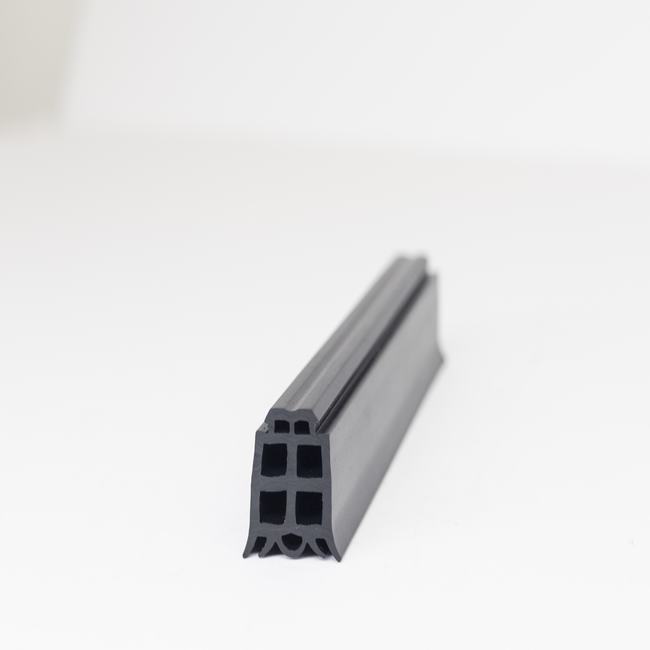Industrial seals are essential components used in a wide range of industrial applications to prevent leakage, contamination, and the ingress of foreign substances into machinery, equipment, or systems. These seals come in various forms and materials, each tailored to specific conditions and requirements within the industrial setting. In this comprehensive description, we will explore the various aspects of industrial seals, their types, materials, applications, and the significance of their usage in industrial processes.
Purpose and Importance:
Industrial seals serve several critical purposes in industrial settings:
- Containment: They prevent the escape of liquids, gases, or solid particles from a sealed system, ensuring that materials stay within their designated areas.
- Environmental Protection: Seals safeguard sensitive components from environmental factors such as moisture, dust, and chemicals that could lead to corrosion, wear, or other forms of damage.
- Safety: In certain applications, industrial seals are integral to safety systems, ensuring that potentially hazardous materials do not escape or come into contact with personnel or the environment.
- Efficiency: By preventing leaks and contamination, seals help maintain the efficiency and performance of machinery and processes, ultimately reducing downtime and maintenance costs.
Types of Industrial Seals:
Industrial seals come in various types, including:
- O-Rings: Circular seals with a wide range of applications, typically made of rubber or elastomeric materials. They provide excellent sealing for static and dynamic applications.
- Gaskets: Flat seals, often made of materials like rubber, metal, or composite materials, used between two surfaces to create a barrier against leaks and contaminants.
- Mechanical Seals: Commonly used in rotating machinery like pumps and mixers, mechanical seals prevent leakage by forming a dynamic seal between a rotating shaft and a stationary part.
- Lip Seals: Also known as oil seals, these are used to prevent the leakage of lubricants in rotating shafts and can be found in various industrial equipment.
- Piston Seals and Rod Seals: These seals are specifically designed for hydraulic and pneumatic cylinders to prevent fluid leakage and maintain pressure.
- Flange Seals: Seals used in pipe and valve connections, ensuring that no fluids or gases escape from the joints.
- Diaphragm Seals: Used to isolate pressure-sensing elements from the process fluid in instrumentation applications, protecting sensitive instruments.
Materials Used in Industrial Seals:
The choice of material for industrial seals depends on factors like temperature, pressure, chemical compatibility, and wear resistance. Common materials include:
- Rubber and Elastomers: Such as Nitrile, Neoprene, and Silicone, provide flexibility and good sealing properties.
- Metal: Stainless steel, aluminum, and other metals are used in certain applications for their durability and high-temperature resistance.
- PTFE (Polytetrafluoroethylene): Known for its excellent chemical resistance and low friction properties, often used in gaskets and lip seals.
- Composite Materials: Combining multiple materials to optimize sealing performance for specific applications.
Applications:
Industrial seals find applications across various industries:
- Automotive: In engines, transmissions, and suspension systems to prevent fluid leakage.
- Manufacturing: In machinery, pumps, and compressors to maintain process efficiency and safety.
- Oil and Gas: In pipelines, valves, and wellhead equipment to prevent leaks and contamination.
- Aerospace: In aircraft engines, hydraulic systems, and landing gear to ensure safety and reliability.
- Pharmaceuticals: In equipment used for manufacturing drugs to maintain purity and prevent contamination.
- Food and Beverage: In processing and packaging equipment to ensure product safety and quality.
- Chemical Processing: In reactors, pumps, and valves to prevent hazardous material leaks.
- Power Generation: In turbines, generators, and steam systems to maintain efficiency and safety.
In summary, industrial seals are fundamental components in industrial processes, playing a vital role in preventing leaks, maintaining efficiency, and ensuring safety across a wide range of applications. The choice of seal type and material is critical, and their proper installation and maintenance are essential for the reliability and longevity of industrial systems and equipment.






